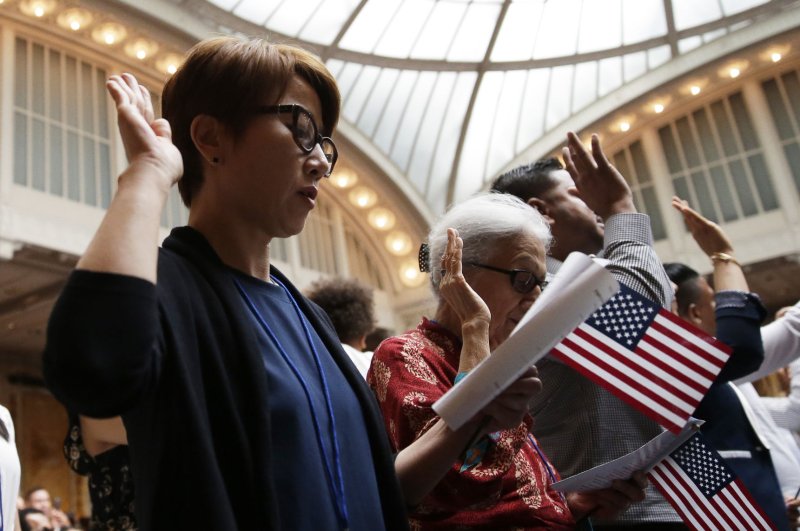New citizens of the United States take the Oath of Allegiance during a naturalization ceremony at the Stephen A. Schwarzmann Building in New York City on July 3, 2018. File Photo by John Angelillo/UPI |
License Photo
June 25 (UPI) -- Opponents to a plan to ask U.S. residents about citizenship during the 2020 Census have filed with the Supreme Court what they say is more evidence that the plan is a political strategy to aid Republicans.
The American Civil Liberties Union notified the court Monday of a lower court ruling last week where GOP strategist Thomas Hofeller's personal computer files were presented.
The ACLU said evidence in that case indicates Hofeller, who died last year, conducted a 2015 study that found Republicans and non-whites could gain an advantage when drawing congressional districts if census takers ask residents if they're legal U.S. citizens.
"This new evidence indicates that the addition of a citizenship question will have a substantially greater impact on noncitizens self-response rates than was evidence in the record available at the district court at trial," ACLU Voting Rights Project Head Dale Ho wrote in a letter to the Supreme Court.
"It is becoming difficult to avoid seeing that which is increasingly clear," Maryland Judge George Hazel wrote in his ruling last week. "As more puzzle pieces are placed on the mat, a disturbing picture of the decision makers' motives takes shape," Hazel said. "The evidence suggests that Dr. Hofeller was motivated to recommend the addition of a citizenship question to the 2020 Census to advantage Republicans by diminishing Hispanics' political power."
The ACLU also presented in its filing Monday Census Bureau data that indicates the addition of a citizenship question increases the likelihood that households won't respond if they have a noncitizen in the house. That, it said, could lead to an overall 2.2 percentage point drop in self response to the 2020 Census.
The high court is expected to rule on the addition of the question at any time. The government has asked justices to expedite the ruling before they must start printing census materials next month.
The Trump administration argues the question is based in enforcing voting rights.















